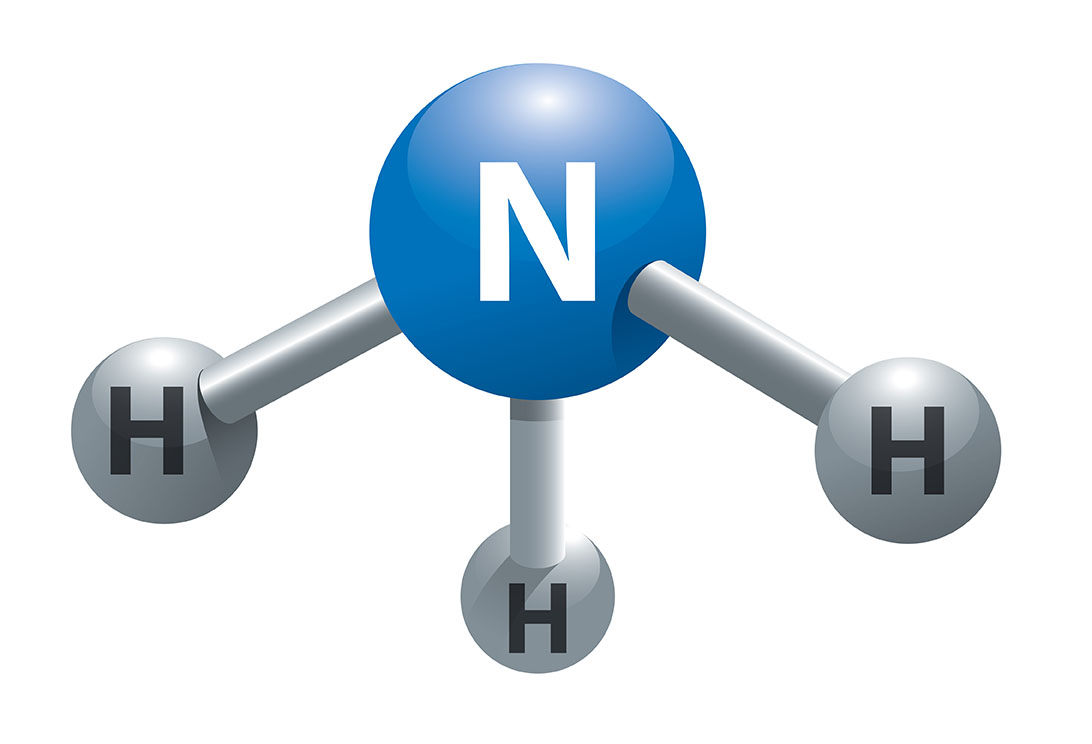

Ammonia is a colourless gas with a strong, pungent smell. It is made up of three atoms: two hydrogen atoms and one nitrogen atom.
Ammonia is a very important substance. It is used in many different products, including fertilisers, cleaning products, and explosives. It is also used in the production of plastics and other materials.
Ammonia is a very reactive substance. It can react with many other substances, and it can be dangerous if it is not handled properly.
The doctor prescribed an ammonia solution to disinfect the wound.

Noun: ammonia.
Adjective: ammoniacal.
Adverb: ammoniacally.
Synonyms: ammonium hydroxide, NH3, pungent, alkaline, toxic.
Antonyms: none.
The word "ammonia" comes from the Latin word ammonium, which itself comes from the Greek word Ammon, the name of an Egyptian god. The god Ammon was often depicted with a ram's head, and the ammonia molecule has a distinctive pungent smell that is similar to the smell of rams' urine.
How can ammonia be used?
Question:
What are the uses of ammonia?
Answer:
Ammonia is a hazardous gas and can be harmful if inhaled. It is important to use ammonia in a well-ventilated area and to wear protective gear when handling it.
Address
Developing Experts Limited
Exchange Street Buildings
35-37 Exchange Street
Norwich
NR2 1DP
UK
Phone
01603 273515
Email
hello@developingexperts.com
Copyright 2025 Developing Experts, All rights reserved.